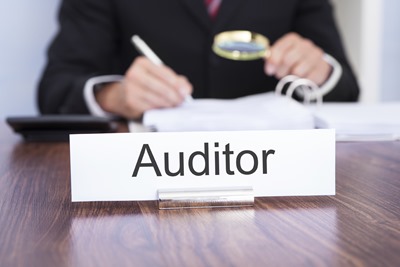 Workers’ Compensation, also known as Workers’ Comp, is usually one of the largest expenses for businesses. Since it is something that employers invest so much money into, it’s always a good idea to be prepared for your next audit, and make sure all of your ducks are in a row. The reason an audit is performed is to determine your Workers’ Compensation Insurance premium. Considering the outcome of the audit can result in drastic changes to your premium, you may want to follow these tips on how to prepare your business.
Workers’ Compensation, also known as Workers’ Comp, is usually one of the largest expenses for businesses. Since it is something that employers invest so much money into, it’s always a good idea to be prepared for your next audit, and make sure all of your ducks are in a row. The reason an audit is performed is to determine your Workers’ Compensation Insurance premium. Considering the outcome of the audit can result in drastic changes to your premium, you may want to follow these tips on how to prepare your business.
1. Gather all necessary records
To prepare for an audit, you will need to have all paperwork and documents ready and organized before the auditor arrives. They will most likely be looking for payroll records, federal tax reports, unemployment records, individual overtime payments, detailed job descriptions, and use of contractors and subcontractors along with certificates of insurance.
2. Make accurate payroll projections, and keep track throughout the policy year
When making payroll projections, you should try your best to be as calculated as you can be, especially if there are any class codes that apply to your operation. It’s also a good idea to monitor your projections during the policy year in order to know where you stand when the next audit comes around. To make it easy, set up quarterly reviews to compare your projections with your actual payroll.
3. Understand the breakdown of certain payrolls
Not all payrolls are the same. For example, if you employ a marine worker who spends half of their worktime on the water, that time will need to be kept separate from the time in the office because it is considered more risky. The same example can be used for a truck driver who splits time between an office, and on the road. Be sure to file the different payroll tasks by different job descriptions. Also, be sure to list overtime individually, because there is a good chance that overtime may have a discounted premium.
4. Check for certificates of insurance for any contractors or subcontractors
You will be required to show proof that any contractors or subcontractors that you hired had their own Workers’ Compensation Insurance, and were not covered by your company. It is also important to make sure all the dates are aligned for the time they worked for you. Without proper documentation, your company could be charged the premium for the contractor during the time you used them.
5. Be involved with the process
Don’t let them leave without reviewing their work and becoming aware of the impact that the audit could have on your business. Also, make sure you have looked over the worksheet the auditor will ask you to sign, and make sure to keep a copy for your records. If the worksheet has yet to be completed, don’t sign it! This helps keep all surprises down to a minimum.
Points to keep in mind
Dealing with an auditor may not be the friendliest experience. Don’t expect to make friends and go out for drinks after, they are only there to look at your payroll, get the figures they need, and leave. Also, it is good for you to know that most of the time, your insurance agent or broker isn’t involved in an audit unless there is a problem. If you don’t hear from us, don’t worry, we haven’t forgotten about you! The auditor will contact you at the end of your period whether you have renewed or not, and at that time, it is a good idea to keep your agent in the loop of the situation.
If you have any questions, or are interested in purchasing Workers’ Compensation Insurance, other types of business insurance, or group health insurance for your employees, please contact us at 954-828-1819 or visit us online at mhginsurance.com. Our insurance specialists have the knowledge and experience to cover your company’s risks appropriately.
Considering the outcome of the audit can result in drastic changes to your workers' comp premium, you may want to follow these tips on how to prepare your business.